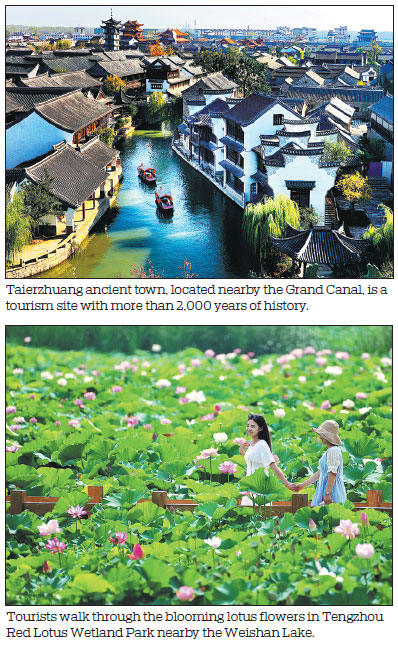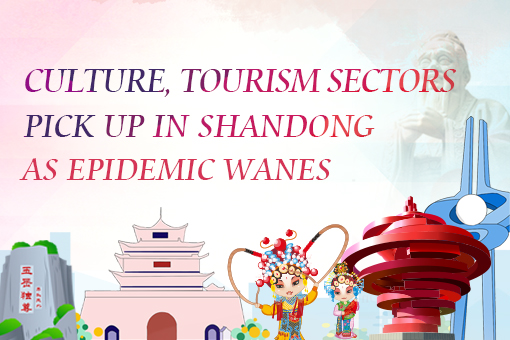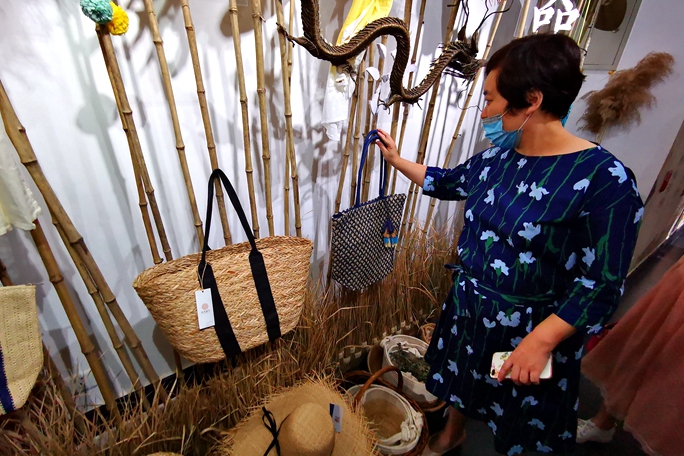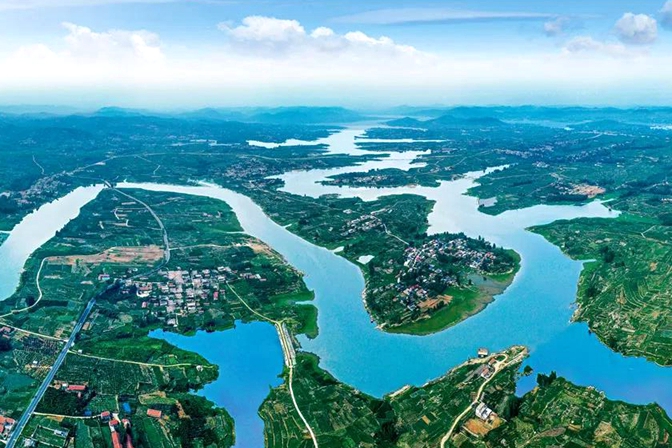Zaozhuang bolsters tourism around famed canal
The Shandong province city of Zaozhuang, famed for its location on China's ancient Beijing-Hangzhou Grand Canal, is stepping up its efforts to develop its tourism industry and attract more visitors.
The local government has launched a special plan which focuses on quality development in the tourism industry from 2018 to 2022, with the goal of achieving annual tourism revenue of 35 billion yuan ($5.22 billion) by 2022.
The city has pledged to speed up the development of a tourism belt centered around the Grand Canal, as well as upgrade its rural tourism resources.
Li Feng, Party secretary of the city said that Zaozhuang, as Shandong's southern gate, is endowed with rich and abundant history and culture, which serves it well as a tourism destination.
Since 2017, the city has approached the development of its Grand Canal section in three ways: creating an ecological belt, an economic belt and a cultural belt, Li said.
The construction of the Grand Canal cultural belt is the focus of the government's campaign to transform the area into a more diverse and productive tourism resource.
We want to tell the story of the canal well and cement its memory rooted in the culture, Li said.
Besides the Grand Canal, Zaozhuang also boasts a longstanding history of Chinese civilization. People have lived in the area for 7,300 years, and it is the birthplace of many famous people, including the famous inventor Lu Ban and Confucian scholar Micius.
The development of Zaozhuang's tourism industry is not without a green focus, and features the 5A-rated scenic area of Taierzhuang ancient town, the Guanshi pomegranate garden, Weishan Lake wetland, Baodugu national forest park and the Xiong'er Mountain national geopark.
Taierzhuang ancient town is located nearby the Grand Canal Zaozhuang section in the city, a site with more than 2,000 years of history.
Located in the transitional zone between North and South China, it was regarded as the traffic hub connecting goods transported both on rivers and roads at the Grand Canal. Businesspeople from all walks of life gathered there, bringing with them different cultures, beliefs and architectural styles.
The Grand Canal was named a UNESCO World Heritage site in 2014. With its beautiful scenery and cultural and historical significance, the ancient town has risen in popularity among tourist at home and abroad.
In recent years, with a strategy promoting rural revitalization in the province, Zaozhuang has played an active role in developing its rural tourism, encouraging the construction of a group of high-quality agricultural demonstration gardens, and fruit-picking and sightseeing parks.
At present, there are 106 villages with leisure-based sightseeing and rural tourism projects in the city, and more than 500 rural leisure agriculture parks have been developed. There are more than 11,000 online stores selling the local agricultural products on e-commerce platforms such as Taobao, Tmall and JD.
Zaozhuang is backing up its tourist destinations by providing financial support. It invested 2.1 million yuan last year in protection and restoration projects for ancient trees, historic houses, streets and villages, as well as establishing a number of rural museums.
In 2018, the city welcomed 24.4 million domestic and foreign tourists, an increase of 8 percent over the same period the previous year, and received a total tourism revenue of 22.51 billion yuan, an increase of 12.7 percent over 2017.

(China Daily 04/26/2019 page25)

 Shandong Culture and Tourism Consumption Season
Shandong Culture and Tourism Consumption Season Culture, tourism sectors pick up in Shandong as epidemic wanes
Culture, tourism sectors pick up in Shandong as epidemic wanes

